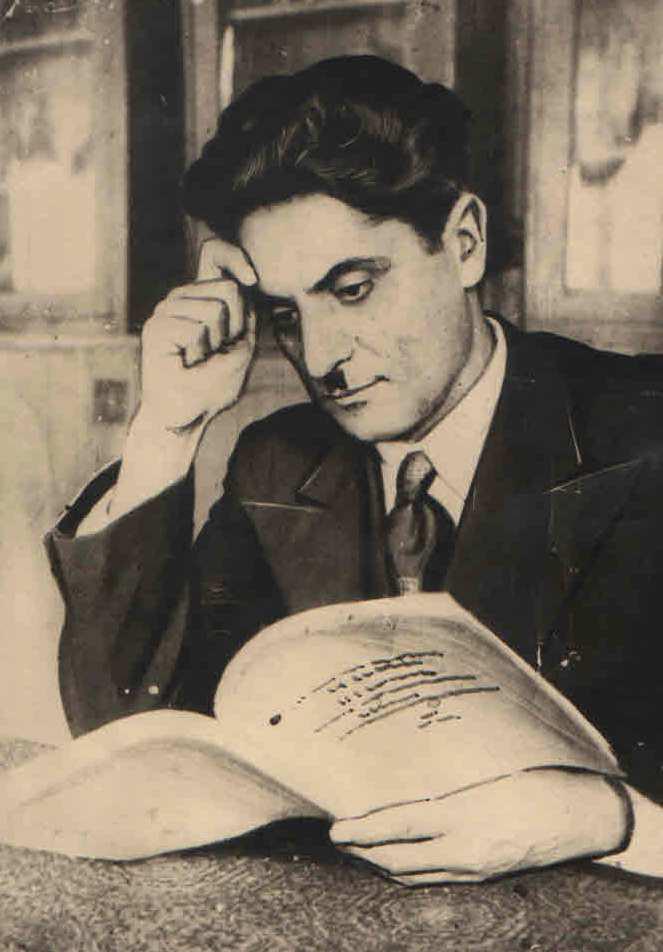Outstanding philosopher Heydar Huseynov
Heydar Huseynov, who made a great contribution to the development of the history and philosophy of Azerbaijan, is one of the founders of the Azerbaijani translation school as well as one of the editors of the first Azerbaijani-Russian and Russian-Azerbaijani dictionary. Heydar Huseynov is also considered one of the founders of the Institute of Philosophy of ANAS, the Faculty of Philosophy of Baku State University.
Heydar Huseynov was born on April 3, 1908, in Irevan, in the family of Haji Najaf Kerbalai Huseyn.
After his older brother was brutally murdered by Armenians in 1918, the family first moved to Batumi, then to Stavropol and finally to Baku.
In 1927-1931 he was a student of the Oriental and Pedagogical Faculty of the Pedagogical University, where mastered Arabic and Persian languages perfectly, and leter graduated from the correspondence department of the Faculty of Social Sciences of the Azerbaijan State University.
The future brilliant scientist and philosopher in his younger years also showed interest in poetry, his poems under the signature of Heydar Huseynzade were published in the periodical press. In 1928-1931, his poems "April 28", "Ateshgah", "Striking Warriors", etc. were published in the newspapers and magazines such as "Molodoi rabochiy", "Revolutsiya i Kultura", "Krasniy soldat".
Heydar Huseynov began his career in 1924 in the library of the Pedagogical College. From 1932 he taught philosophy at various universities. In 1935, he published the book "Dialectical Materialism" in Azerbaijani, and in 1939 - "Dialectics and Metaphysics". In 1936, he participated in the preparation of the Soviet Encyclopedia of Azerbaijan, and in 1940 became the editor-in-chief.
In 1936-1940, Heydar Huseynov worked as a director of the Institute of Encyclopedia and Dictionaries of the Azerbaijan branch of the USSR Academy of Sciences. He defended his Ph.D. thesis in 1939, his doctoral thesis in 1944, and in the same year received the academic title of professor. In 1945 he was elected a full member of the Academy of Sciences of the Azerbaijan SSR.
In 1939–1945, he worked as a deputy chairman of the Azerbaijan branch of the Academy of Sciences of the USSR, in 1945–1950 - vice-president of the Academy of Sciences of the Azerbaijan SSR, at the same time heading the faculty of social sciences of the academy.
In 1943, he worked as a head of the Department of Marxism-Leninism, then the Department of Philosophy of the Azerbaijan State University, and in 1945-1950 he worked as a director of the Institute of Party History under the Central Committee of the Communist Party of Azerbaijan.
Heydar Huseynov is the author of over 100 scientific articles. The objects of his research were very diverse personalities. Among them are Bakhmanyar, Nizami Ganjavi, Abbasgulu Agha Bakikhanov, Mirza Fatali Akhundov, Gasan bey Zardabi, Uzeyir Gadzhibekov, Samed Vurgun, outstanding personalities of Russian science and thought, such as our brilliant compatriot Mirza Kazym bey and also Chernyshevsky, Mendeleev, Radishchev, and many others whose public, philosophical and scientific works were studied in detail by Heydar Huseynov.
During the years when fascism was raging, Heydar Huseynov wrote many scientific articles against fascism and his reporting articles on the research of Azerbaijani scientists in accordance with the requirements of the war era in the field of the national economy, medicine, geology, petrochemistry, energy, etc. were published in the periodical press.
In 1948, Heydar Huseynov was awarded the Stalin Prize II degree for the creation of the "Complete Azerbaijani-Russian Dictionary". In the same period, Heydar Huseynov also wrote a 733-page fundamental work entitled “On the History of the Social and Philosophical Thought of Azerbaijan in the 19th Century” and in March 1950 received the Stalin Prize of the III degree for this. The purpose of the work was the systematic preparation of the foundations of the history of the philosophy of Azerbaijan. However, several pages of the work give grounds for criticism of Heydar Huseynov to his opponents. Particulary, in the part of the work relating to Mirza Kazymbey, “evidence” “against” the USSR is revealed. The description of Sheikh Shamil by Heydar Huseynov in his work as a national hero and leader of the people's liberation movement, based on historical facts, angered Mirjafar Baghirov.
In May 1950, Heydar Huseynov was sharply criticized at a meeting of the Bureau of the Central Committee of the Communist Party. The Central Committee of the Communist Party of Azerbaijan appealed to the Council of Ministers of the USSR with a petition to deprive him of the Stalinist awards he received, and it was granted. Should be noted that Heydar Huseynov transferred funds from the two Stalin prizes he received to the account of orphanages and war invalids.
Heydar Huseynov was expelled from the Communist Party and relieved of his post at the Academy of Sciences. Subjected to unreasonable persecution by the government and some colleagues, and having learned about the imminent arrest, he saw the only way out in suicide. The great scientist Heydar Huseynov committed suicide in August 1950. After the death of Stalin, Heydar Huseynov was rehabilitated and reburied in 1958 on the Alley of Honor in Baku.
By the decree of the President Ilham Aliyev signed by on July 11, 2008, solemnly marked the 100th anniversary of the birth of the outstanding philosopher-scientist, laureate of the USSR State Prize, Academician Heydar Huseynov.
Recommended literature:
- Әсәдов, Сабир. Һејдәр Һүсејнов / С. Әсәдов ; ред. И. Мәммәдов. - Бакы : Азәрбајҹан ЕА, 1998. - 95 с.
- Heydər Hüseynov - 100 / AMEA Fəlsəfə, Sosiologiya və Hüquq İnstitutu ; red. heyəti: İ. R. Məmmədzadə [et al.]. - Bakı : Təknur MMC, 2009. - 172 s.
- Hacıyeva, Arzu Əşrəf qızı. Akademik Heydər Hüseynov : monoqrafiya / A. Ə. Hacıyeva ; elmi red. A. A. Əlizadə ; red. İ. R. Məmmədzadə. - Bakı : Elm, 2015. - 240 s.